Blueprint for all
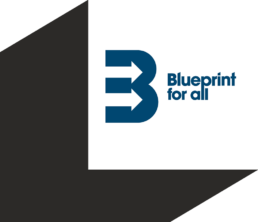
Blueprint for all
Blueprint for All diversifies education through free Careers Programmes. We believe talent is everywhere, however opportunities are not, and we can change the outcome for many. We provide young people of diverse ethnic heritage and/or from disadvantaged socio-economic backgrounds with the employment skills to build their career aspirations. We run a number of Programmes, which include workshops, workplace visits, and talks delivered by aspirational industry professionals.
Our programmes provide strong and impactful support to both participants and teachers. We incorporate the Gatsby Benchmarks into our practices and empower schools to ensure all their students, regardless of race, ethnicity, or background, are provided with tangible opportunities to thrive.
Research: Life Chances Insights report and Race Terminology.
End Sexism in Schools
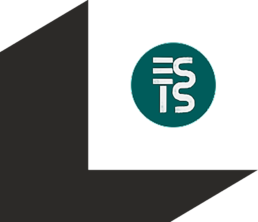
End Sexism in Schools
End Sexism in Schools is a grassroots organisation campaigning for an education system free of sexism that allows all children to fulfil their potential. We want women and girls to have equivalent representation within the curriculum as men and boys and to have an equal share of school resources.
We carry out research into the content of the school curriculum, we create resources and provide CPD for teachers to help them to diversify their lessons, and we partner with other organisations to tackle wider areas of gendered inequality, such as school uniform.
Our research exploring the gender balance of texts taught in the English curriculum at Key Stage 3 shows that 77% of schools researched teach only one or no whole texts – a novel or a play – written by female authors and 99% of the plays taught are authored by men.
Read our ‘Balancing the Books’ report into gender bias in the English curriculum at Key Stage 3.
In our latest research report, we analyse the content of the GCSE English Literature set text lists and the choices of texts schools make from these lists, with a focus on the representation of female authors and female protagonists. Our research shows that in 2022 only 2% of GCSE pupils studied a whole text written by a female author. Read our ‘Pride and Who? Jane Where? The Missing Women in GCSE English Literature’ report.
To find out more about our current research project focusing on the history curriculum at Key Stage 3, click here.
To view our resources and CPD for teachers to help them to diversify their lessons, click here.
Joy Uplifts
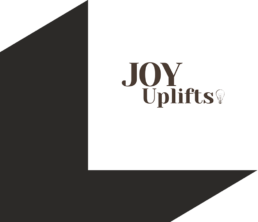
Joy Uplifts
Our staff flagship program is ‘Overcoming Unconcious Bias – Become a Healthy Ally’. The culture we live in was not created overnight and it won’t be changed solely through legal and policy change – it will require each and every one of us to change how we think and act. In order to create a better world, we need to engage with ourselves so that we can better engage and support others. This is not a one-session, ‘fix all’ solution for instant behavioral change. Overcoming unconscious bias takes commitment, deep self-awareness, and ongoing work.
Staff are introduced to the concept of unconscious bias and explore tools collaboratively, for overcoming it.
Together, we discuss what it means to become an effective ally and become change agents within our communities.
Tranquiliti
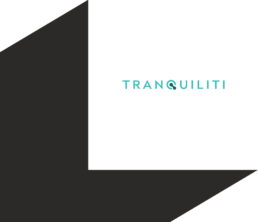
Tranquiliti
Tranquiliti is a new, digital platform that transforms the ability of schools to support student wellbeing.
Through our app students answer weekly questions about their personal wellbeing, social and emotional skills, and the school climate. We then answer the question “what next?” by providing personalised guidance to students, teachers and school leaders based on the data. Through this we facilitate proactive action in each classroom and the systematic development of wellbeing across the whole school – all driven by the voice of students.
Received EdWard from UCL’s EDUCATE programme for putting evidence and impact at the heart of our service.
Supported by Big Change as Pioneering Leaders in Education.
Think2Speak
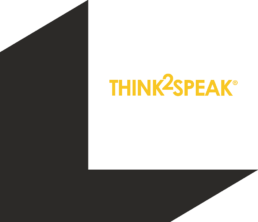
Think2Speak
Empowering LGBTQ children, young people and their families. Amplifying their voices, providing support and offering hope.
Think2Speak is a multi award winning social enterprise based in Lincolnshire supporting LGBTQ+ children, young people and their families. Our LGBTQ+ inclusion expert consultants support schools and organisations working with children and young people through consultancy, training, eLearning and advice.
- The Big Issue Changemaker of 2021
- NatWest Women in Social Enterprise (WISE100) Social Business Leader of the Year 2019
- Small Charity Big Impact Rising Star - East Midlands Charity Awards 2019
Our DEI Working Parties' Training
Our DEI Working Parties' Training
Our DEI Working Parties' Training
Our Training Offer
We support DEI Working parties in developing their vision, mission and values. We run virtual training sessions and coaching sessions to support the group in building momentum.
We provide critical friendship to bring constructive challenge to the work and the approaches being taken. We provide a safe space to share challenges the group are facing.
We provide an external perspective and help you to stay focused. We signpost additional resources and support you can access as a school to enhance your DEI provision.
- Unpacking key language
- Developing a clear vision for DEI
- Understanding how to engage hearts and minds
- Reflecting on how to amplify lived experience
- Developing inclusive leadership behaviours
- Holding courageous conversations
- Considering how to influence others
- Handsworth Wood Girls’ Academy
- Hatton Special School
- King Edward’s Foundation
- Kingham Hill School
- Summit Learning Trust
Best bit of training in ages! Very positive response from staff, they were saying how good it was to find a voice for these important elements of our work and lives.
David Tomlinson, Headteacher
I found it really thought provoking and it made me much more conscious of my responsibilities to be aware of DEI and gave me a good understanding of where to start in how to develop my knowledge further. I really took away from it that I need to be more intentional and I thank you for that. However the best part was that you made me feel interested and inspired to do so.
Jennifer Cole, Assistant Head of Senior School, Brunei
Unconscious Bias Toolkit
Unconscious Bias Toolkit
Unconscious Bias Toolkit
Toolkit collated by Hannah Wilson
What Is Unconscious Bias?
Unconscious (or implicit) bias is a term that describes the associations we hold, outside our conscious awareness and control. Unconscious bias affects everyone. Unconscious bias is triggered by our brain automatically making quick judgments and assessments.
The tendency of us as humans is to act in ways that are prompted by a range of assumptions and biases that we are not aware of. This can include decisions or actions that we are not consciously aware of, as well as hidden influences on decisions and actions that we believe are rational and based on objective unbiased evidence and experience.
What Is an Example of Unconscious Bias?
An example of this bias during hiring is if the hiring panel favors male candidates over female candidates even though they have similar skills and job experience. Another well-known example is the gender pay gap.
What Influences Unconscious Bias?
Unconscious bias is triggered by our brain automatically making quick judgments and assessments. They are influenced by our background, personal experiences, societal stereotypes and cultural context.
What Is Unconscious Bias at Work?
Unconscious bias can be present in organisations and groups as well as influencing the behaviours and decisions made by individuals.
Unconscious or implicit bias refers to the associations that are made between different qualities and social categories such as race, gender or disability and are judgements that are made without conscious awareness.
These automatic preferences or stereotypes are a major contributor to a lack of workplace diversity.
How Do You Deal with Unconscious Bias?
- Accept that we all have unconscious biases
- Make considered decisions
- Monitor your behaviour
- Pay attention to bias related to protected characteristics
- Widen your social circle
- Set ground rules for behaviour
- Avoid making assumptions or relying on gut instinct
What Are the Risks Associated with Unconscious Bias?
- When judgements and decisions are influenced by unconscious bias we are, in effect, using an incomplete and inaccurate evidence base. This will lead to poor decisions.
- Unconscious bias (particularly when linked to gender, ethnicity, disability or some other characteristic) has unfair and negative consequences for the subjects of this bias. This includes unfair treatment and poorer outcomes (e.g. in health, education and employment).
- Unconscious bias can result in microagressions and discrimination.
What Can You Do About It?
The most important thing you can do is recognise that unconscious bias is likely to be influencing your actions, behaviours and decisions – as individuals and in groups and organisations.
Take time to explore the material provided on this site, reflect on your decision making (conscious and unconscious) and consider the steps you can take to minimise the consequences of unconscious bias in different situations and contexts.
One of the most important things we can do is avoid making rushed or instinctive decisions (e.g. around recruitment or assessing others). Think carefully about what could be used to support objective judgements and decisions and avoid making decisions likely to be influenced by unconscious bias (e.g. recruitment) when tired or stressed.
The Diverse Educators’ Unconscious Bias Toolkit
- Where do biases come from?
- What has formed my implicit biases?
- Which issues do I not care about as much?
- Do I interact with people that have different lived experiences than me?
- Do I understand intersectionality?
- Do I understand the different types of bias?
- What are some common types of unconscious bias?
- What is the connection between unconscious bias and microaggressions?
- What privileges do I have that others do not?
- What kind of workplace decisions can be affected by unconscious bias?
Articles
Blogs
Podcasts
Resources
TED Talks
Videos
Belonging Toolkit
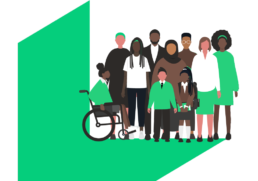
Belonging Toolkit
Belonging Toolkit
Toolkit collated by Zahara Chowdhury with Hannah Wilson
What Is Belonging?
Cultivating and building a culture of belonging encompasses all aspects of diversity, equity and inclusion. To put it quite simply, if employees, staff and students feel that they belong in the workplace and at school, it means you are working within and implementing effective diverse, inclusive and equitable practices. Even better, if people in your organisations can verbalise why and how they belong, you are building a great culture! Equally, DEI work is never complete; the challenge and opportunity is to create a long-term culture of belonging so that every person – past, present and future – that enters your organisation and school (and even your home!) feels they belong.
What Does it Mean to ‘Belong’?
Good question. Employees are more than their job title. Students are more than their results. Parents and carers are more than responsible adults. To belong means individuals feel seen, heard and appreciated. They feel human and are treated like humans too. Nurturing a culture of belonging can also be seen as the ultimate result of successful wellbeing strategies in the workplace: if people feel happy, respected, purposeful and that they matter – they are likely to experience a strong sense of belonging too.
How Do I Create a Culture of Belonging?
Another great question! To start with, in the words of Simon Sinek, we should view cultivating workplace cultures as an infinite process: creating a culture of belonging is ever changing and ever growing – just like the nature of work and school. If you consciously regard building a culture of belonging as an ongoing process and a continuous strategy, it is likely to actively feature in all parts of work and workplace culture.
- DEI Toolkits. It is recommended that you use all other DE&I toolkits on the DiverseEd website to build a culture of belonging. Pragmatically, create a long-term strategy and ‘deep dive’ into different aspects of creating a culture of belonging, depending on the individual needs and feedback from your organisation (for example, you might tackle flex and anti-racism first, after consulting with stakeholders in your organisation).
- Representation matters. When building teams, recruiting and selecting curriculum material, ensure you are bringing diverse voices to the forefront. This may sound obvious, but it is often an underestimated (yet crucial) part of DEI strategy. If people have representative role models with shared experiences and values, they are more likely to feel they belong in the workplace.
- Listen. Create spaces and time to listen to your staff and students. Take the conversation beyond task driven activities and get to know them as people. Championing diversity does not just mean championing a protected characteristic; it means valuing the whole person and their ongoing lived experiences. For example, prioritise belonging in your training and development; consider times in the school and working day that could be reconfigured to get to know one another: this could be lunchtimes or dedicated ‘open door policy’ times too.
- Environment. Create an environment that is inclusive and fun! Go beyond displays and think of school and work as ‘home from home’. How can you make your employees feel comfortable and welcome in their place of work? Ask them.
- Professional relationships. An often underestimated or overused initiative, but effectively creating workplace coaches or buddies can build positive and trusting relationships in the workplace. Effective training and CPD in coaching and mentoring not only up-skills your staff, but helps nurture positive connection in the workplace too.
- Empathy, trust and compassion. Three key leadership traits, which will benefit all employees. Firstly, outline in your culture and environment that you’re all on the same team – you trust, champion, respect and support one another. Success, results and personal development are heavily rooted in trust in the workplace. Creating a culture where empathy and compassion are key features in all areas of work and school (from HR policy to safeguarding and curriculum strategy) highlights that your people matter and feel appreciated and respected.
The Diverse Educators’ Belonging Toolkit
- How strong is my sense of belonging in my workplace?
- How do we create and maintain a culture of belonging for all of our stakeholders?
- How do we know who feels seen, heard and appreciated?
- How has our strategy for belonging been designed and how is it evolving?
- How is our strategy for belonging communicated?
Articles
Blogs
Books
Podcasts
Resources
TED Talks
Videos
Class Inequality Awareness Toolkit

Class Inequality Awareness Toolkit
Class Inequality Awareness Toolkit
Toolkit collated by Georgie Williams
What is social class, and what is class inequality?
Social class is the division of a society based on the perceived social status and economic status of individuals – it is not simply the wealth an individual earns that determines what social class they are considered to belong to. Generally, we think of class being separated into three categories – upper class, middle class and working class. However, changes to labour practices and the characteristics of social groups in the turn of the century has led to revisions in how class is determined and defined. In 2011, the Great British Class Survey (conducted by the BBC) revealed seven distinct class categories; these class categories were described as ‘elite’, ‘middle class’ (broken down into established and technical middle class), ‘new affluent workers’, ‘traditional working class’, ‘emergent service sector’ and ‘precariat’. The latter four vary in terms of their financial income and the perceived value of their ‘social contacts’, but all would fall under pre-established notions about the ‘working class’- labourers or low income workers. It is this fracturing of social classes into sub-categories that illustrates how unclear it can be who is or isn’t at risk of class inequality or restricted social mobility.
Class inequality occurs when resources in a given society are distributed unevenly, typically through norms of allocation, and reinforce specific patterns along lines of socially defined categories of persons. Class inequality ensures only particular families have access to higher education for their children, access to particular schools or housing, access to high or low quality healthcare and even transportation or financial services. There are ways to resist or reverse the impact of class inequality through organisational support and conscientious behaviour as an individual.
Class inequality awareness (on personal and organisational levels) includes:
- Challenging classist language and slurs (e.g. “chav”, “benefits scrounger”)
- Inclusive hiring practices (e.g. “blind” CV and application form screening, adjusting job specifications around educational background, removing need for driving licence/car where possible)
- Providing training and upskilling for free/ reduced rates, accounting for socioeconomic background
- Running inclusive & affordable social events (avoiding expensive meals, trips or events which require a pre-established skillset or knowledge background), or challenging class-excluding events when organised
- Providing or supporting flexible working arrangements for parents/caregivers
- Providing or supporting financially accessible transportation schemes
The Diverse Educators’ Class Inequalities Awareness Toolkit
- How do I challenge classist comments and stereotyping?
- How do I champion equality and fight for equity?
- How do I share any privilege I have to centre those who are marginalised by society and the system?
Blogs
Books
Podcasts
Resources
Videos
Powerful Histories
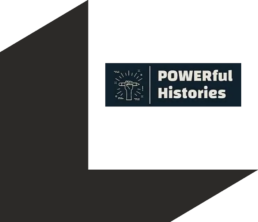
Powerful Histories
Powerful Histories works extensively with schools, both in the UK and internationally, to diversify curriculums through the exploration and application of global teaching methodologies and indigenous knowledge systems.
Understanding not just ‘what we learn’ but ‘why we learn it’ and ‘how we learn it’ forms the basis of the Global Curriculum Project, an initiative which seeks to bring together teachers, students and educationalists to research, produce and share knowledge on curriculum development, diversity and community change.

